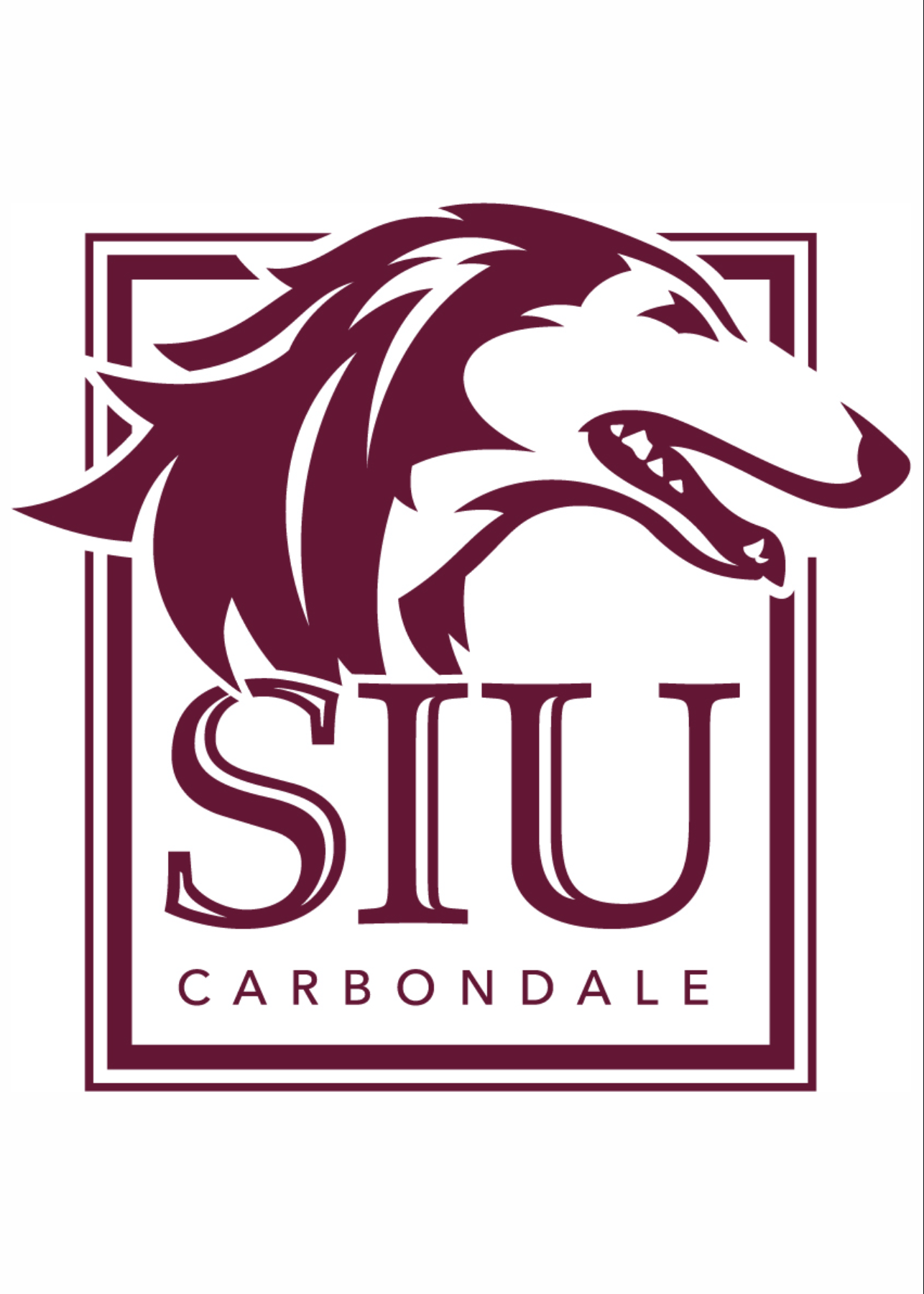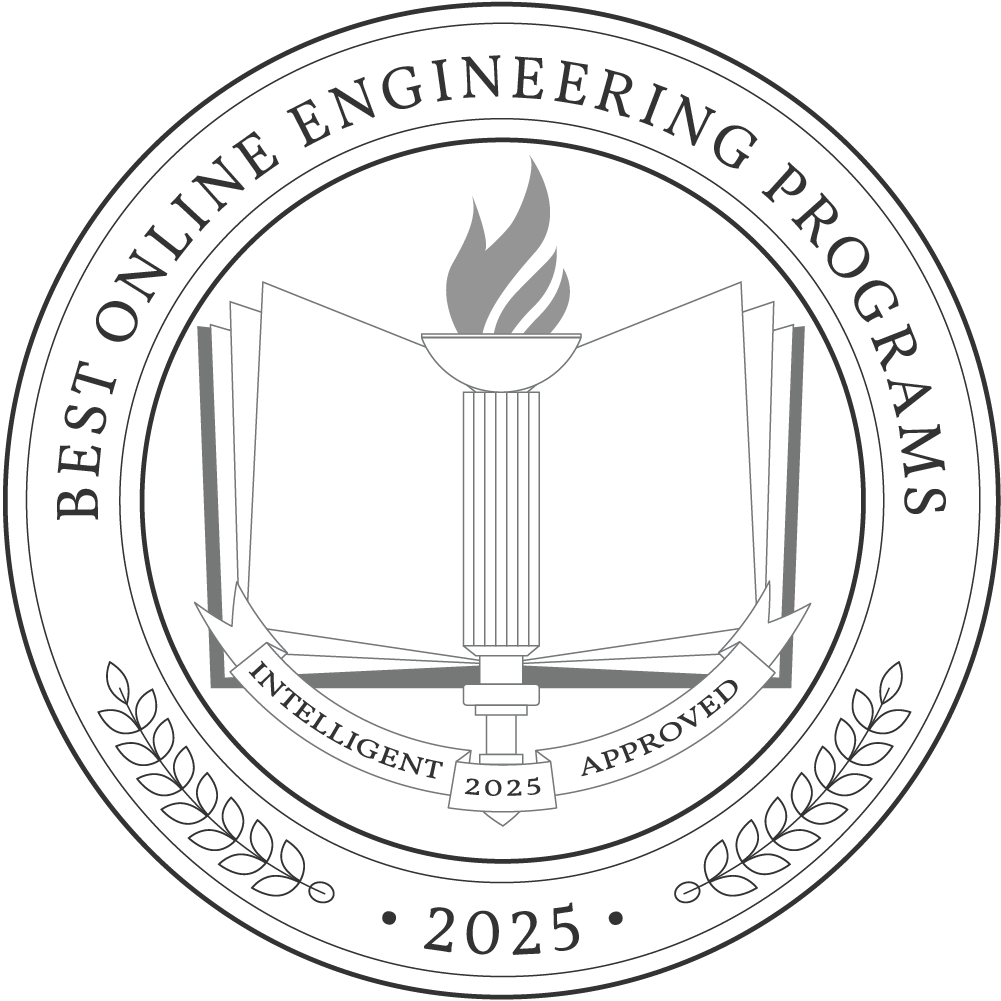For aspiring engineers seeking a flexible learning experience, an online engineering degree is what you need to succeed. These degrees equip you with the essential skills and knowledge for civil, mechanical, electrical, and environmental engineering roles. Professionals in this industry earn a median salary of $91,420, surpassing the national median, with steady demand projected over the next decade. Generally spanning four years for full-time students, these programs offer a comprehensive yet adaptable pathway to engineering excellence, with tuition averaging $14,688 per year for four-year undergraduate programs.
Why Trust Us
The Intelligent.com Higher Education Team is dedicated to providing students with independent, equitable school and program rankings and well-researched resources. Our expert-driven articles cover topics related to online colleges and programs, paying for school, and career outlooks. We use data from the U.S. Department of Education’s College Scorecard, the National Center for Education Statistics, and other reputable educational and professional organizations. Our academic advisory team reviews content and verifies accuracy throughout the year for the most current information. Partnerships do not influence rankings or editorial decisions.
- Analyzed over 2,000 national, accredited, and nonprofit colleges and universities
- 800+ rankings pages are reviewed and updated yearly
- Content is informed by reputable sources, surveys, and interviews with academic advisors and other experts
- Over 100 data points are reviewed for accuracy and quality throughout the year, including sources
How we rank schools
Our list features the best online Engineering degree programs at top colleges nationwide. Each school featured is a nonprofit, accredited institution — either public or private — with a high standard of academic quality for post-secondary institutions.
We evaluated each school’s program on tuition costs, admission, retention and graduation rates, faculty, reputation, and the student resources provided for online students. We collected data from trusted sources like the National Center for Education Statistics, individual school and program websites, school admissions counselors, and other data sources. Then, we calculated the Intelligent Score on a scale of 0 to 100 based on the following criterion:
Academic Quality:
- Admission rate versus enrollment rate
- Retention rate of students who return after year one
- Accreditation status (regional and programmatic)
- Nonprofit status, both private and public institutions
Graduation Rate
- Overall graduation rate
- Total number of currently enrolled students, including diversity metrics
- Student-to-faculty ratio
Cost and ROI
- In-state and out-of-state per-credit tuition rates and fees
- Required credits to graduate
- Earning potential after graduation
- Availability of federal student loans, scholarships, and other financial aid options
Student Resources
- Available student services for online-only and hybrid programs
- On-campus amenities like tutoring centers and the number of libraries
Read more about our ranking methodology.
Best 35 Accredited Online Engineering Programs
FiltersInstitution Type
Status
- Intelligent Score
- Alphabetically By University Name
- Acceptance Rate
- Enrollment
- In-state Graduate Tuition
- Out-of-state Graduate Tuition
- In-state Undergraduate Tuition
- Out-of-state Undergraduate Tuition

Florida International University
Intelligent Score: 97.74In-state: $4,721
Out-of-state: $16,529
In-state: $8,912
Out-of-state: $8,912
SAT: 1110-1260
ACT: 23-29
In-State: $235
Out-of-State: $648
Online
Accreditation Board for Engineering and Technology
128

University of Southern Mississippi
Intelligent Score: 95.94In-state: $8,786
Out-of-state: $10,786
In-state: $8,786
Out-of-state: $8,786
SAT: N/A
ACT: 19-26
$416
Online
Accreditation Board for Engineering and Technology
120

University of Alabama
Intelligent Score: 95.82In-state: $10,780
Out-of-state: $30,250
In-state: $10,780
Out-of-state: $10,780
SAT: 1070-1330
ACT: 23-31
$385
Online
Accreditation Board for Engineering and Technology
126

University of North Dakota
Intelligent Score: 94.61In-state: $8,540
Out-of-state: $12,810
In-state: $11,060
Out-of-state: $11,060
SAT: 1000-1230
ACT: 20-27
The University of North Dakota has a robust engineering school called the College of Engineering & Mines. The college offers 28 online degree programs across eight engineering departments at the undergraduate and graduate levels. One unique feature of UND's engineering degrees is the chance to work toward an undergraduate and graduate degree at the same time. For example, the accelerated Biomedical Engineering program allows students to earn a combined major and master's degree in 5 years, with a BS in Computer Science or Electrical Engineering and an MS in Biomedical Engineering. Combined degrees are also available for Chemical, Civil, Energy, Geological, and Mechanical Engineering.
$611
Online, On-Campus
Accreditation Board for Engineering and Technology
130

Stony Brook University
Intelligent Score: 94.56In-state: $7,070
Out-of-state: $24,740
In-state: $11,310
Out-of-state: $11,310
SAT: 1230-1440
ACT: 26-32
$353
Online
Accreditation Board for Engineering and Technology
128

University of Arizona
Intelligent Score: 93.86In-state: $10,990
Out-of-state: $33,273
In-state: $11,938
Out-of-state: $11,938
SAT: 1090-1350
ACT: 21-29
$600
Online
Accreditation Board for Engineering and Technology
120

University of North Carolina at Charlotte
Intelligent Score: 93.26In-state: $7,019
Out-of-state: $34,198
In-state: $10,552
Out-of-state: $10,552
SAT: 1280-1490
ACT: 28-33
In-State: $189
Out-of-State: $348 - $800
Online
Accreditation Board for Engineering and Technology
120

Old Dominion University
Intelligent Score: 92.99In-state: $7,029
Out-of-state: $26,664
In-state: $10,207
Out-of-state: $10,207
SAT: 960-1170
ACT: 18-25
In-State: $408
Out-of-State: $439
Online
Accreditation Board for Engineering and Technology
128

Southern Illinois University
Intelligent Score: 92.89In-state: $9,591
Out-of-state: $9,591
In-state: $11,268
Out-of-state: $11,268
SAT: 930-1180
ACT: 20-27
$321
Online, On-Campus
Accreditation Board for Engineering and Technology
120- 126

Arizona State University
Intelligent Score: 92.76In-state: $10,710
Out-of-state: $28,800
In-state: $11,720
Out-of-state: $11,720
SAT: 1100-1320
ACT: 21-28
Arizona State University offers over 300 online degree and certificate programs for students who would like the flexibility of distance learning. Within the engineering category alone, ASU offers 17 undergraduate and 19 graduate programs covering a wide range of disciplines, from biomimicry to sustainability. Students can expect to take 120 credits for undergraduate programs and 30 credits for graduate programs, learning from the same outstanding faculty that teach on campus. To be admitted into ASU, students will be required to meet GPA and test score minimums or be successful on the "Earned Admission Track." Engineering students who require professional licensure to begin a career will be eligible to take their exams in Arizona, while out-of-state students will need to be sure they meet all of their state requirements to become licensed after graduation.
$574
Online
Accreditation Board for Engineering and Technology
120

PennState World Campus
Intelligent Score: 91.04In-state: $15,025
Out-of-state: $24,413
In-state: $22,464
Out-of-state: $22,464
SAT: 1070-1300
ACT: 24-29
$626 - $671
Online
Accreditation Board for Engineering and Technology
120

East Carolina University
Intelligent Score: 90.88In-state: $4,452
Out-of-state: $20,729
In-state: $4,749
Out-of-state: $4,749
SAT: 1020-1170
ACT: 19-24
In-State: $204
Out-of-State: $883
Online, On-Campus
Association of Technology, Management and Applied Engineering
120

Clemson University
Intelligent Score: 88.93In-state: $14,118
Out-of-state: $37,110
In-state: $10,600
Out-of-state: $10,600
SAT: 1210-1390
ACT: 27-32
$550
Online
Accreditation Board for Engineering and Technology
128

Indiana State University
Intelligent Score: 88.09In-state: $9,186
Out-of-state: $20,290
In-state: $7,668
Out-of-state: $7,668
SAT: N/A
ACT: N/A
Resident: $361
Non-Resident: $456
Online
Accreditation Board for Engineering and Technology
122

Bemidji State University
Intelligent Score: 87.03In-state: $7,976
Out-of-state: $7,976
In-state: $8,012
Out-of-state: $8,012
SAT: N/A
ACT: 19-24
$374
Online, On-Campus
Higher Learning Commission
120

University of West Alabama
Intelligent Score: 85.93In-state: $9,100
Out-of-state: $18,200
In-state: $6,678
Out-of-state: $6,678
SAT: N/A
ACT: 17-22
$325
Online
Southern Association of Colleges and Schools Commission on Colleges
120-125

Lamar University
Intelligent Score: 85.55In-state: $6,129
Out-of-state: $15,945
In-state: $6,397
Out-of-state: $6,397
SAT: 943-1140
ACT: 17-23
Resident: $259
Non-Resident: $669
Online
Accreditation Board for Engineering and Technology
120

Eastern New Mexico University
Intelligent Score: 84.63In-state: $4,074
Out-of-state: $6,114
In-state: $5,351
Out-of-state: $5,351
SAT: 950-1160
ACT: 17-23
Resident: $174
Non-Resident: $257
Online
Higher Learning Commission
120
How to Choose an Online Engineering Program
Choose your area of study
Choosing the right specialization in any field is essential, but it’s especially crucial in engineering as each area offers distinct career trajectories and opportunities. Take some time to consider your interests, strengths, and long-term career goals. For example, a concentration in civil engineering caters to those enthusiastic about infrastructure and urban development, while mechanical engineering appeals to individuals intrigued by machinery and manufacturing processes. Electrical engineering focuses on electronics and power systems, ideal for tech enthusiasts, and environmental engineering is an excellent choice for those committed to sustainability and ecological solutions.
Research schools and programs
After identifying your intended specialization, it’s time to research schools and programs that will support your interests.
You should only apply to institutions that have been approved by a DOE-recognized regional accrediting organization, such as the New England Commission of Higher Education or Northwest Commission on Colleges and Universities. These organizations evaluate schools to ensure they provide students with a high-quality education. Those who attend a school that isn’t regionally accredited may be unable to access financial aid or transfer credits to another institution if needed.
Ideally, your online engineering program will also be accredited by a respected industry group like the Association of Technology, Management, and Applied Engineering (ATMAE) or ABET. These programmatic accrediting organizations have particularly high standards for engineering education.
You should also consider industry partnerships for internships, alumni networks, and opportunities for hands-on experiences such as projects or competitions. Evaluating student support services, career placement rates, and program outcomes also provide insights into program quality.
To learn more about any schools that you’re interested in, you can visit the school’s website, contact an admissions counselor, follow the school on social media, or attend an in-person or virtual open house.
Prepare for tests and applications
Application requirements vary by school and program. Once you know your preferred programs, you can prepare for tests and applications.
Since many engineering programs require SAT or ACT scores, investing in a structured test prep program can be invaluable. Such programs offer strategies, practice tests, and expert guidance, ultimately helping you earn your best scores.
You’ll also want to prioritize refining your application materials — writing compelling personal statements as needed, securing strong recommendation letters, and requesting transcripts from any previously attended institutions early. And you should always contact an admissions counselor to ensure you have the most accurate information regarding requirements and deadlines.
Select your program
While some students may choose to take a more focused approach, applying to only one or two schools, others may cast a wider net and apply to many schools to increase their chances of acceptance. Both methods have their merits, but submitting applications to multiple schools means you may have multiple acceptance letters.
Before making your final decision, review your needs and goals again. Do you plan to attend school full-time or part-time? Do you want your program to be as online as possible, or are you fine with a hybrid program that has a fair amount of in-person requirements? Some programs offer asynchronous courses, which can be completed at your own pace, while others only offer synchronous courses, which involve remotely attending lectures and completing assignments at the same time as other students — which of these two online learning formats do you prefer? Your school should accommodate your scheduling needs and learning preferences.
Determine how you’ll pay for your degree
Speak to financial aid counselors at the schools you’re interested in for the most accurate and specific information about program cost.
There are many resources available to help pay for your degree. Submit the Free Application for Federal Student Aid (FAFSA) to determine your eligibility for federal grants and loans. Consider participating in a work-study program, which enables students to earn income while gaining work experience on campus. If you’re employed, ask your employer about tuition reimbursement opportunities, where employers sponsor part of your educational expenses.
What Can You Expect From an Online Engineering Program?
An online engineering program offers a flexible yet rigorous academic experience, ideal for students balancing their education with other responsibilities. You can anticipate a curriculum rooted in core engineering principles, encompassing mathematics, physics, and specialized engineering disciplines such as civil, mechanical, or electrical engineering. Throughout these programs, you’ll engage with innovative tools, simulations, and virtual labs, ensuring a comprehensive learning experience in an online format.
For undergraduates, these programs usually take four years to complete. Graduate degrees in engineering typically require an additional two years for completion, focusing on advanced coursework, research methodologies, and specialization areas. Many institutions that offer both a bachelor’s and a master’s degree program feature a bachelor’s-to-master’s track, allowing ambitious students to earn both degrees within a condensed five-year timeframe.
Potential courses you’ll take in an online engineering program
- Introduction to Engineering Design: This course introduces students to foundational engineering design principles, emphasizing problem-solving techniques, conceptualization, and prototyping. Learners delve into design methodologies, Computer-Aided Design (CAD) tools, and project management essentials, equipping them with the skills to innovate and create solutions for real-world challenges.
- Mechanics of Materials: In this course, students explore the behavior of various materials under different loads and environmental conditions. They learn about stress, strain, elasticity, and material failure mechanisms. Through hands-on simulations and experiments, students gain insights into designing structures and components that can withstand specified conditions, ensuring safety and reliability in engineering applications.
- Circuit Analysis: This course focuses on the principles governing electrical circuits, covering topics such as Ohm’s law, Kirchhoff’s laws, and circuit theorems. Students analyze DC and AC circuits, learning about circuit components like resistors, capacitors, and inductors. By the end, learners can design, research, and troubleshoot complex electrical circuits, laying the groundwork for advanced electronics and system integration.
- Software Development for Engineers: This course introduces students to programming languages and software tools essential for modern engineering applications. Students develop software solutions, simulations, and data analysis tools through hands-on projects, enhancing their computational proficiency and problem-solving capabilities in different engineering domains.
What Can I Do With an Online Engineering Degree?
Career outlook
Overall, employment in the engineering industry is expected to grow throughout the next decade, according to the Bureau of Labor Statistics (BLS). The agency predicts there will be, on average, 188,000 new jobs annually in engineering and architecture through 2032.
However, some segments of this industry are predicted to grow faster than others. For example, employment of industrial engineers is expected to increase by 12% by 2032, while jobs for nuclear engineers will only increase by 1% during the same time period.
Broader trends in part determine the availability of engineering jobs. For instance, an increased focus on renewable energy and a lack of construction of new nuclear power plants is responsible for the decreased demand for nuclear engineers. Meanwhile, a push for more sustainable forms of energy is leading to an increased demand for environmental engineers, who have a projected employment growth of 6%.
Other fast-growing engineering sectors include:
- Software engineers — Analyze users’ needs, create computer applications that allow users to complete specific tasks, and build the underlying systems that run devices or control networks.
- Median annual salary: $130,160
- Projected employment growth (through 2032): 25%
- New jobs projected: 153,900 per year
- Mechanical engineers — Analyze problems to see how mechanical and thermal devices can solve issues, develop and test prototypes of devices, and investigate equipment failures to diagnose faulty operation and recommend remedies.
- Median annual salary: $99,510
- Projected employment growth (through 2032): 10%
- New jobs projected: 19,200 per year
- Chemical engineers — Apply the principles of chemistry, physics, and engineering to design equipment and processes for manufacturing products such as gasoline, detergents, and paper, and conduct research to develop new and improved manufacturing processes.
- Median annual salary: $112,100
- Projected employment growth (through 2032): 8%
- New jobs projected: 1,300 per year
Online Engineering Degree Frequently Asked Questions
How do I apply to an online engineering degree program?
To apply for an online engineering degree program, research specific admissions requirements for your desired institution. Most schools share the same standard application materials — including:
- Official transcripts
- Recommendation letters
- A personal statement showcasing your enthusiasm and aptitude for engineering
- Standardized test scores
While some schools have shifted to test-optional policies, many engineering programs still emphasize ACT or SAT scores. Given this, investing time in a test prep program can significantly boost your chances of meeting or exceeding score expectations.
Consult an admissions counselor before submitting your application to clarify any queries, gain insights into program specifics, and tailor your application to align with the institution’s values.
How much does an online engineering degree cost?
According to the National Center for Education Statistics, the average annual cost of college tuition is $14,688 for undergraduate programs and $20,513 for graduate programs. Yet, it’s important to note the additional costs beyond tuition, which may include:
- Technology fees
- Library fees
- Course materials
- Textbooks
- Software subscriptions
How long does it take to earn an online engineering degree?
The time it takes to complete your online engineering degree will depend on your enrollment status and degree level.
For full-time undergraduate students, completing a bachelor’s degree takes approximately four years, encompassing 120 to 150 credits. Meanwhile, full-time master’s programs typically require an additional two years, with credit requirements ranging from 30 to 36 credits. Students pursuing both degrees simultaneously through a bachelor’s-to-master’s track usually follow a more rigid course schedule, allowing them to complete both degrees in five years.
However, program length can be extended for part-time students due to a reduced credit load per semester, potentially taking longer to fulfill degree requirements. It’s essential to consider your academic goals, availability, and commitment level when selecting an enrollment pace, as this will influence your completion timeline.
Is an online engineering degree worth it?
A bachelor’s degree is a common qualification for entry- and mid-level engineering jobs, including those in fast-growing sub-fields like software engineering, aerospace engineering, and industrial engineering. A bachelor’s degree also sets up students to pursue a master’s degree, which they may need to obtain leadership positions in their field.
From a financial perspective, earning a bachelor’s degree increases an individual’s earning potential. According to data from the BLS, workers with a bachelor’s degree earn a median weekly salary of $1,493, compared to $899 for those with only a high school diploma. Additionally, for engineers specifically, the median annual salary is often above $90,000.
Read More about Online Engineering Degrees
- Best Online Associate in Engineering (AES) Degree Programs
- Fastest Online Engineering Degree Programs

